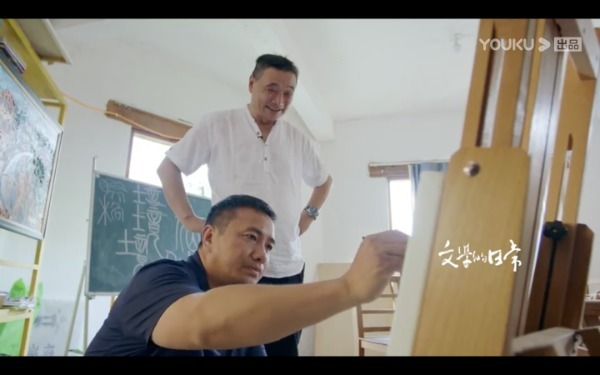 |
|
Painter Wu Xiaohai visits author Ma Yuan's home in a remote village in Yunnan province.[Photo provided to China Daily] |
As to the challenges faced by Chinese writers, Alai says his work was once turned down by some publishers who said his writing was elegant but too good to sell well in the market.
"People always want to buy the best things in the material world," Alai says. "However, in the spiritual world, why is something 'too' good to sell?"
Though Wang had expected the authors to voice their views on modern literature in the documentary, their interviews went on to bigger issues such as the meaning of life and analyses of their own personalities. Wang did not intervene.
"Compared with texts, visuals seem too shallow to fully display what they wanted to express through literature," Wang says.
"I don't expect to reflect how great writers they are via the documentary. If you want to know, you have to read their books... I can only offer a glimpse of their lives."
Wang was best known for his acclaimed documentary, Breakfast in China, which is close to people's everyday lives. Consequently, speaking of authors' everyday lives, Wang once thought it was probably better to shoot scenes of them visiting teahouses or markets.
"But I found their everyday lives often have nothing to do with that," Wang says, adding that Alai, for example, spends a lot of his time at home-reading, meditating and smoking.
"We set the scenes where they (the authors) felt comfortable."